Howard University Chess Club approaches 100 years!
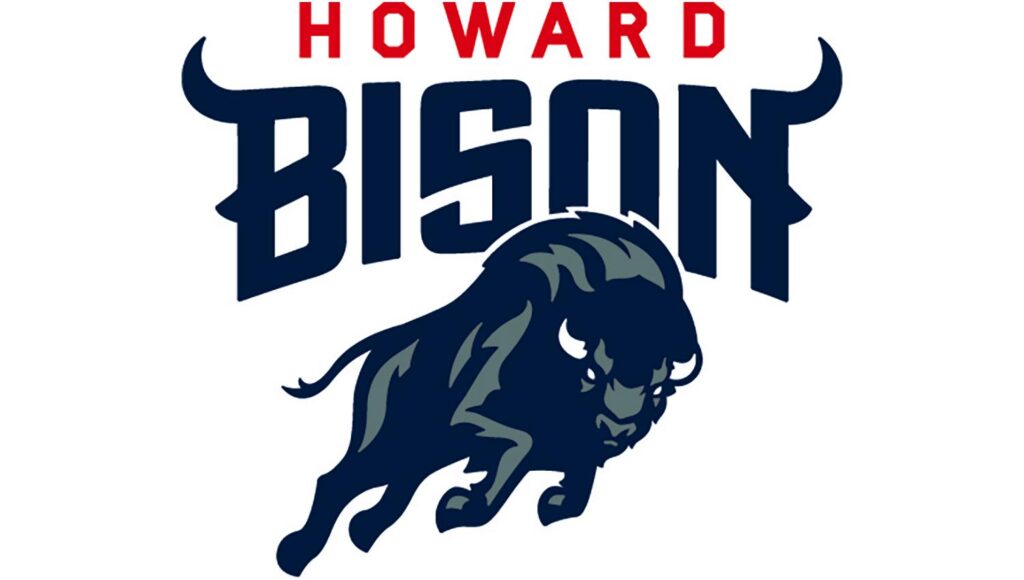
Howard University, founded in 1867, is a preeminent institution of higher learning. Jamaal Abdul-Alim has been an unofficial advisor to the chess club for several years, helping the organization in various areas, including a recent historical project. Currently an adjunct professor at the University of Maryland, he is keen on the potential of leveraging chess at HBCUs, potentially drawing sponsorship and professional development opportunities.

Photo by Astrid Riecken
The Beginning
During Black History Month 2024 on February 7th, Abdul-Alim presented a slideshow about the chess club’s evolution to the Howard community. After diligently searching the Howard archives, including yearbooks and school newspapers, he found that the chess club was founded on October 8, 1926. The event was reported in the October 13th issue of the Howard Hilltop newspaper.
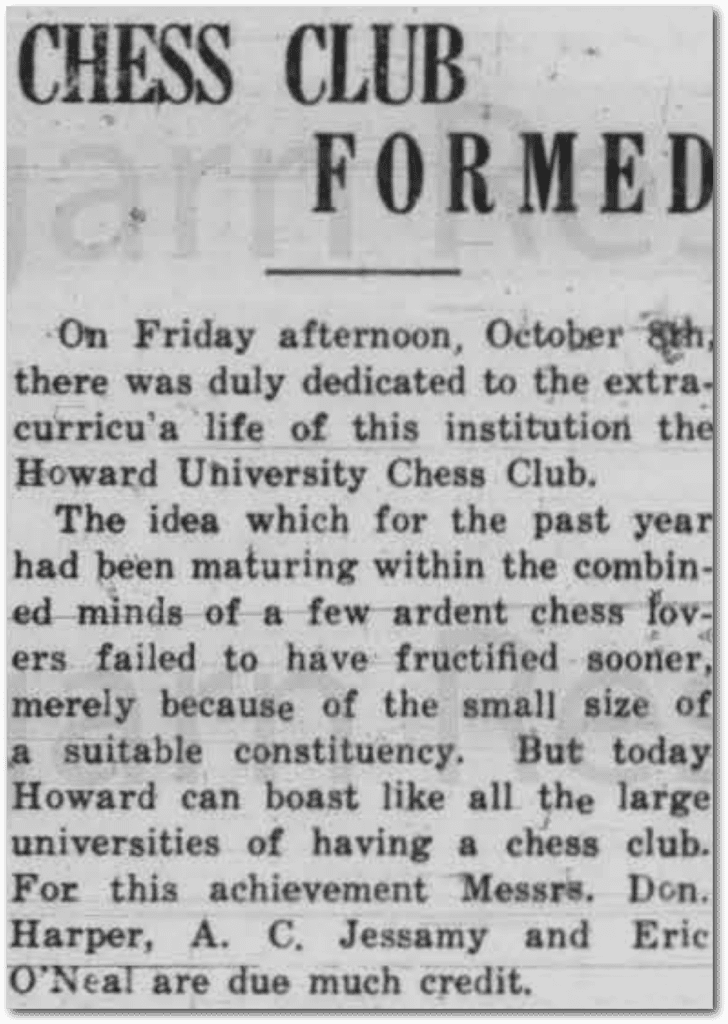
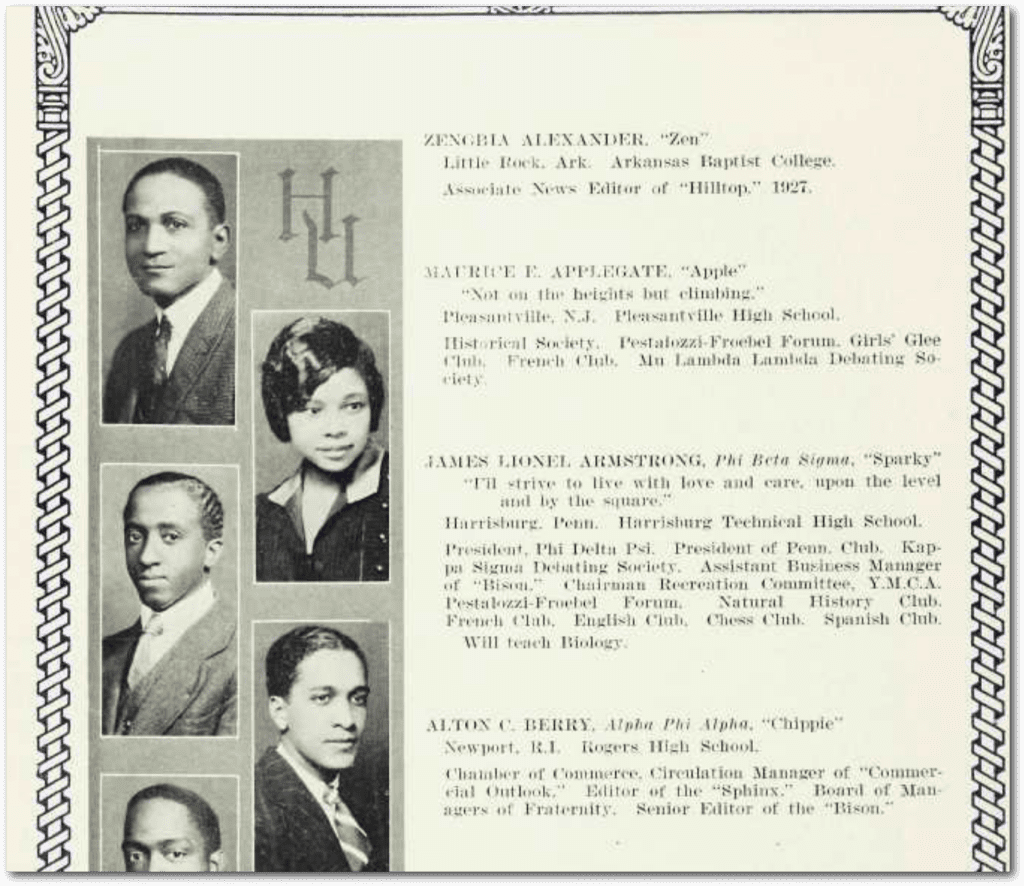
James Lionel Armstrong is listed as a member of the Chess Club
What is amazing about this discovery is that in 2026, the chess club will mark 100 years since its founding. While the club has gone through periods of dormancy, the HU Chess Club is currently a fixture on campus. One of the names that shines through in its history is the late Judge George Leighton, a standout student at Howard. He was featured as the campus’s top player during his matriculation.
After graduating from Howard in 1940, he attended Harvard Law School until World War II broke out in his second year. After serving with valor in the Army infantry, he completed his law degree in 1946. Leighton eventually settled in Chicago, where he had an esteemed career as a judge and was an active tournament player. He briefly reached an Expert rating but spent most of his years as a “Class A” player.
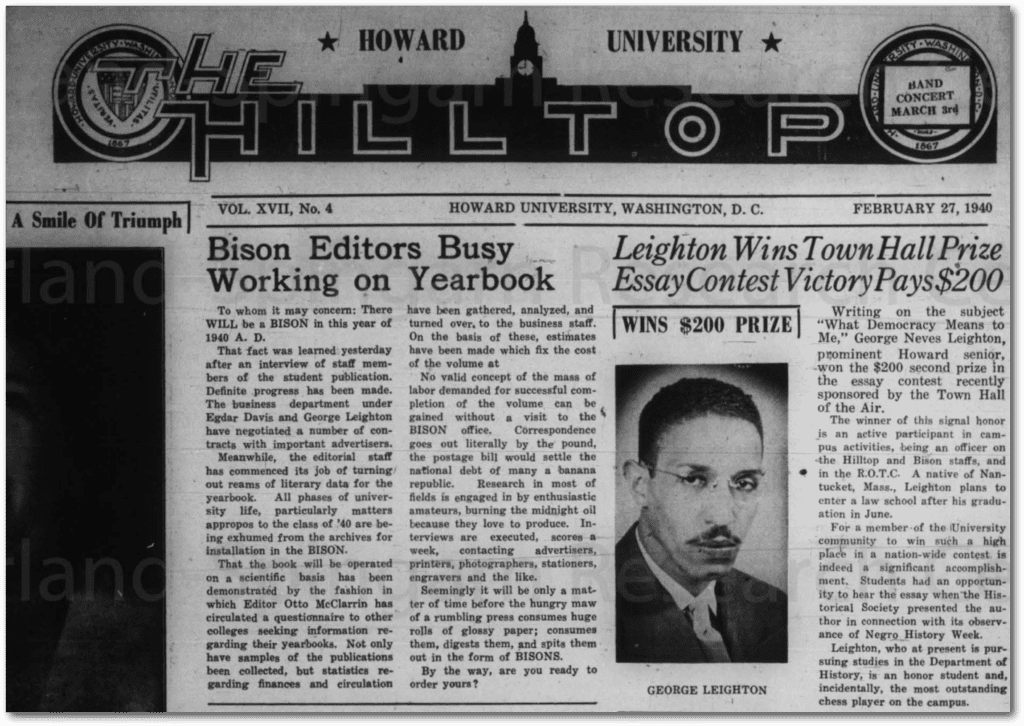
George Leighton was Howard’s top player.
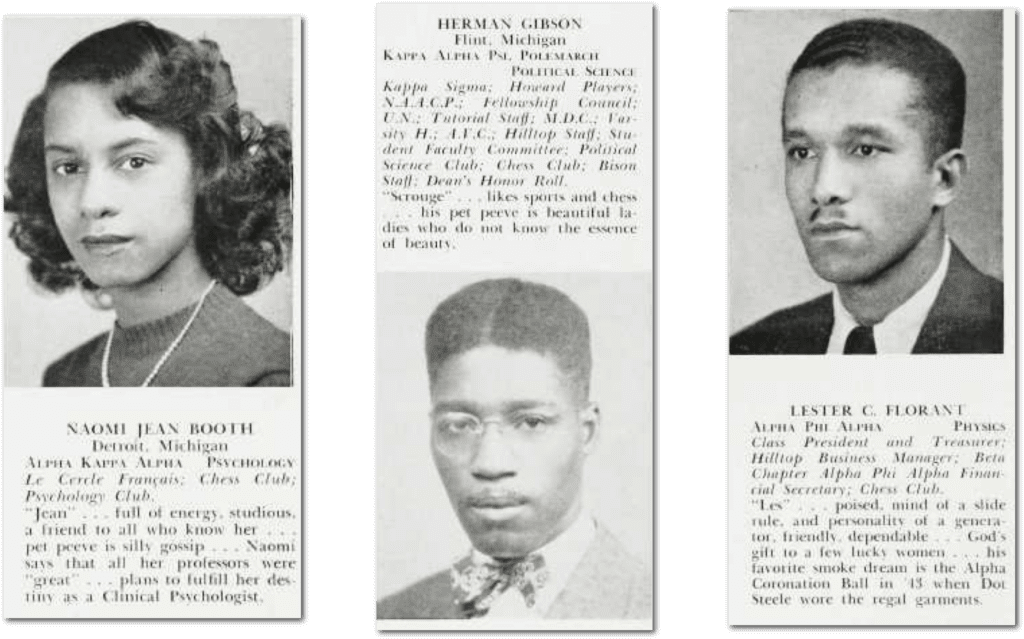
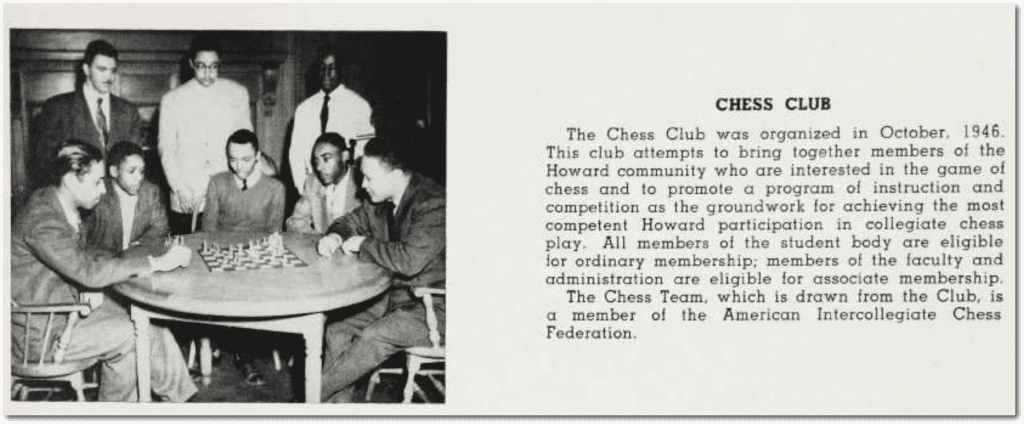
The Challenge of HBCU Chess
In the early 2000s, the club competed in the Pan-Am Intercollegiate team event and was supported by local chess figures such as Vaughn Bennett, National Master Charles Covington, International Master Oladapo Adu, and Dr. Kimani Stancil. After a period of dormancy, Howard reactivated the chess club in 2019 at the initiative of Sultan-Diego Sulyman and under the mentorship of Zahir Muhammad. Others were instrumental in the club’s rejuvenation, such as Howard faculty member David Bennett and advisor Nisa Muhammad.
Despite these efforts, continuity is one of the main challenges of chess clubs at Historically Black Colleges and Universities (HBCUs). Chess clubs at HBCUs tend to go in cycles. If we look at the research done on Howard, Abdul-Alim found numerous instances where Howard announced restarting the club, and they were typically 10-20 years apart. Notice the opening sentence noting 17 years of inactivity.

For those who understand the climate at HBCUs, there is a lot of competition for students’ attention. These activities center around social gatherings and activities that further one’s professional development and campus status. Chess is well-known, but it is not one of the activities that is seen as an activity to increase one’s upward mobility on campus. However, chess has become more popular in recent years through streaming and pop culture references. It is common to see chess players at an HBCU campus, but in many cases, there are not enough members to charter an organized club.
The consistency is often lacking at HBCUs as many do not have a background in tournament activity. While chess received a boost during COVID and through the successful “Queen’s Gambit” miniseries, the Internet platform has made it more accessible. Regarding Black culture, chess remains on the fringes as something played in the parks or barbershops but not as something to be taken on as a competitive activity.

In a 2006 essay titled “Chess at America’s HBCUs,” three issues were highlighted as barriers to campuswide acceptance.
- Lack of chess tradition in many of the cities hosting HBCUs
- Lack of experienced players
- Lack of mentorship
These are still challenges 18 years later. Most HBCUs are in small towns in the Deep South, outside the major chess activity centers. Of course, universities like Howard benefit from an area where chess is part of the local culture. Dupont Circle is a famous chess watering hole, and the DMV area has been an integral part of chess activities for over a century. Maryland was also a hotbed of chess and the city of Baltimore hosts Morgan State University, a prestigious HBCU. In fact, FM William Morrison is a Morgan alumnus.
Theophilus Thompson, a 19th-century problemist, walked the grounds of Frederick, Maryland, and made his mark on chess. He published a book on chess problems in 1873 and was the first African-American to make such a contribution to chess. Around this time, HBCUs were sprouting up around the country, but there is no telling if chess was part of the culture in the late 1800s. Howard’s founding of its chess club in 1926 raises more questions about whether more HBCUs had organized chess activity.
Intercollegiate Competition
Only a handful of HBCUs have competed at the Pan-Am Intercollegiate Team event. Howard previously competed in 2005 and, after reactivation, competed three years in a row. In 1950, Howard was reported to be a member of the American Intercollegiate Chess Federation, but there is no idea whether Howard competed in the Pan-Ams, which started in 1946. Below is a photo of chess players in Washington, DC, who were members of the Paragon Chess Club. Many were graduates of Howard University.
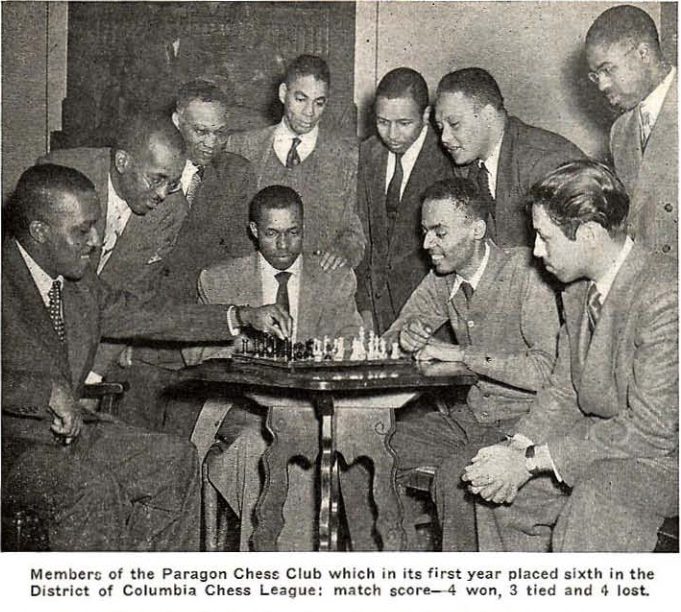
As mentioned, Howard has competed in the Pan-Ams, including in 2021 (winning under-1400 prize), 2022, 2023 (8th in the under-1800 section), and 2024. In April 2023, Howard won the 1st HBCU Chess Classic and sent two teams to Atlanta. In 2024, they came in 2nd place in the 2nd HBCU Chess Classic. The initiative of assembling HBCUs has been revolutionary to its core, and it would make sense that Howard is one of the important schools participating. This could lead to a much wider market reach for an untapped market of chess players at HBCUs.
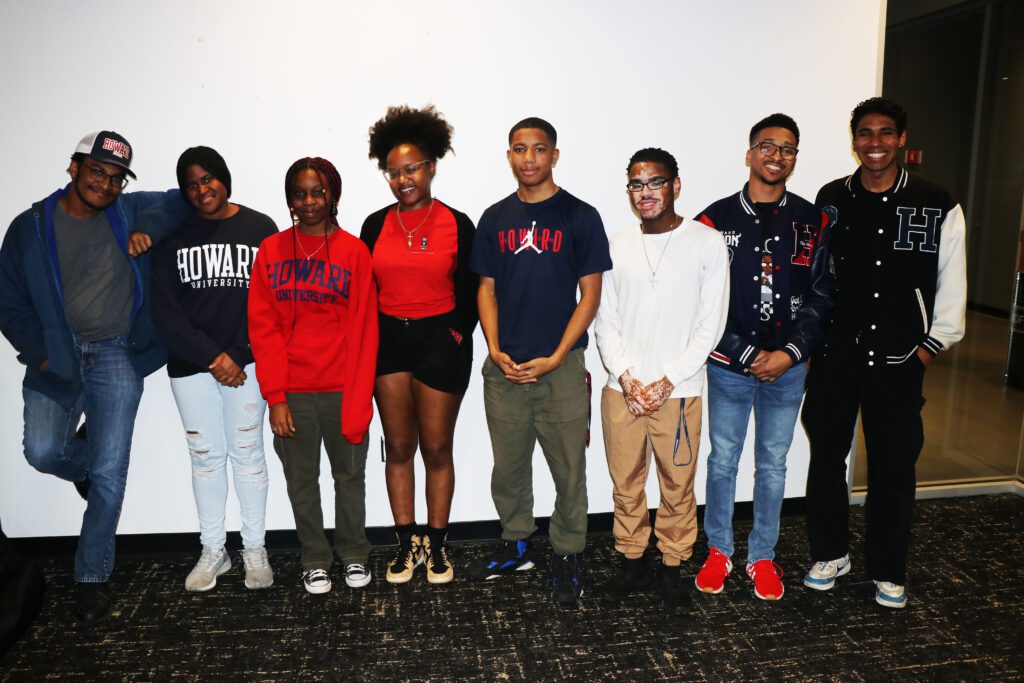
Photo by Daaim Shabazz/The Chess Drum
Abdul-Alim’s presentation mentions ways to celebrate the 100th anniversary event. These ideas feature tournaments, exhibitions, and perhaps guest lectures. Some of his ideas are very ambitious, but given that it is such a historical landmark, it is appropriate to call for such recognition. Howard has an esteemed history as one of the premier HBCUs. It is known as the birthplace of several fraternities and sororities and a breeding ground for Black political and social leaders. Perhaps it can lay claim to being one of the oldest chess clubs, not only at an HBCU but in the U.S.

